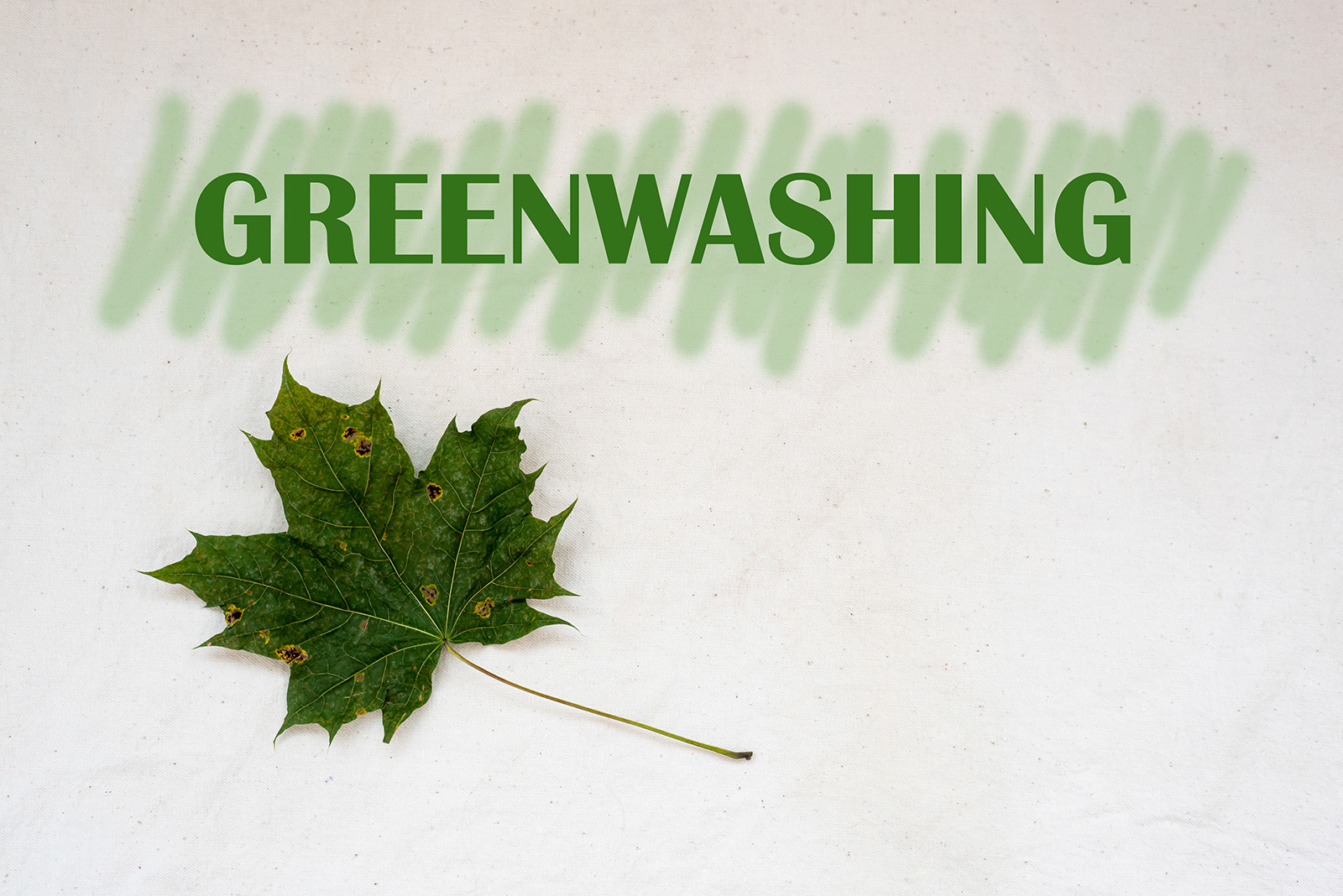
A business’s stance on environmental issues carries more weight regarding customer expectations today than ever. In many cases, whether a company adheres to ethical environmental, and sustainable practices in how they run they approach running their business. To their credit, many companies are making a concerted effort in striving to not only implement but to expand many such ‘green’ practices. Others, however, preach that they are doing the same, but are almost entirely all talk when it comes to the topic.
Some of these companies embellish how much they actually do, while others outright lie about their sustainability efforts. This is a practice referred to as greenwashing, and it is a risky gamble for a business to say the least, in terms of damaging its reputation. Not only should consumers watch out for companies that engage in greenwashing, but businesses should also be careful not to fall into such practices due to the risks involved.
Greenwashing explained
Greenwashing refers to a company downplaying its brand’s environmental impact, or, in worse cases, outright covering up the damage being done through its efforts. Whether the extent of greenwashing is false advertising or bloated stats, or publicly broadcast falsehoods, once uncovered, it is a pit very difficult for businesses to crawl out from.
The term “greenwashing” originated from a journalist covering the environmental ‘pretend’ game engaged by the hotel industry, as they claimed to be environmentally helpful by asking their guests to only use one towel during their stay in the 1980s. While painting themselves as champions of environmental health through the practice, the hotel was really only saving themselves money on laundry expenses.
Over the decades, the hotelling industry was far from the only one that exaggerated or outright lied through advertisements and claims about their environmental efforts. Even if they made efforts, sometimes they were nominal, though boasted about as if they were grand.
Greenwashing through imagery
A common greenwashing practice involves a company evoking the appearance of their business as being environmentally friendly, though, in reality, it is just an illusion of actually being green. For instance, some companies may adorn their products with ‘green’ images such as fields of lush, green grass, or clean rivers. However, this may be a deceptive masking of the ugly underbelly of their actual practices which may do nothing to help the environment at all, or worse, cause more harm.
Few industries have been as guilty of greenwashing practices through images, as the water bottling industry. While their imagery displays clear water streams, glaciers, serene waterfalls, and gorgeous meadows, they are among the largest one-time water bottle producers in the world. In a frighting state, the bottled water industry produces 50 billion water bottles annually, with an estimated 400 metric tons of waste generated during the same period of time. Even more unfortunate is that 10 million tons of the waste end up in the Earth’s oceans.
Another example of these egregious greenwashing through imagery involved European airliner Ryanair who exploited imagery in their advertising of flowers, green fields, and other visuals that broadcast the illusion that they were trying to be as ‘green’ as possible. In reality, Ryanair’s claims of being Europe’s lowest-emission airline were completely fabricated, so much so that the EU listed them on their Top Ten Carbon Emitters list. After a swift challenge of their claims, they were outed as frauds in terms of their environmental achievements and were forced to pull their advertisements.
Misleading verbiage
The expression “words are wind” has never been more appropriately placed than with companies that tout their product as “all-natural,” “cruelty-free”, and even “eco-friendly.” These words can lead people to believe that the product is environmentally friendly when the lack of legal regulation can permit companies to throw those terms around to make customers gravitate more toward the product, even though they are not true.
“Recyclable” is another commonly thrown-around term, but just because companies use the word it doesn’t make it accurate. Some products have recyclable parts, but often those parts are nearly impossible to separate from those that are not recyclable. This doesn’t stop many companies from placing a tag of “recyclable” on their products, however. Calling it as such leads consumers to believe that the entire product is sustainable in ‘green’ terms.
While many recycling items still end up in a landfill, the good news is that these practices are attempted to be curbed by lawmakers who are seeking to punish companies who misrepresent themselves in these terms, and, in effect, curb false or embellished claims of product recyclability.
Inconsistent statistics
Some companies overinflate the statistics to support their claims of environmental friendliness. The EU conducted a study that found that as many as 42% of claims were either entirely false or exaggerated. More than half of the cases in which the companies were prompted for material to back up their green efforts, could not provide it.
Sometimes, the statistics are generated by the company itself, or a third party who is paid by the company to provide them. These numbers are intended on supporting claims of being ‘green.” However, these self-produced statistics should always be taken with a grain of salt, especially when the claims are not corroborated by independent agencies. This often deceptive practice is known as astroturfing.
Astroturfing
Astroturfing is a companion practice to greenwashing that involves a movement or messaging that is presented as a matter of scientific research, fact, or popular public opinion. Companies sometimes send in representatives to be hired into already established groups or create dishonest “grassroots” movements that help to present them as an environmentally friendly entity or to manipulate statistics for the same purpose.
Sometimes companies will even pay for statements or research into their antics as a way to push back against progressive issues or environmentalists. A lot of these surface as social media posts that seem organic, but are actually paid for by the corporations themselves.
One company that was involved in such a scandal was Walmart as a blog, along with a series of social media posts, were generated about a pair of individuals visiting Walmart locations across the United States. While the initial perception was that the two individuals were not affiliated with the company, it came out that not only did Walmart finance the effort, the idea for it was generated by their PR firm. This was an overall effort to garner public support in their representation bids, and to push back against union efforts, and anti-Walmart sentiment.
Gatorade was also involved in such practices, with their “Sports Science Institute” which was founded to provide information about various sports issues, including dehydration in the 1970s, and to support the company’s product. Over the years, the Gatorade-funded entity has come under scrutiny and criticism over the partial nature of its findings and the validity of its claims, with many experts claiming that information from the ground led to the misunderstanding of hydration, and caused a lot of harm, particularly to young people in terms of the obesity epidemic.
Notable greenwashing scandals
Fossil fuel companies are some of the most called-out and primary offenders in terms of greenwashing campaigns. Exxon, for instance, has long been accused of putting up a front about its environmentally-caring nature, though continuing to pollute excessively, while bribing politicians to alter environmental laws that are disadvantageous to them.
In 2015, Volkswagen was famously exposed for making up and lying about their emission test results. The company was revealed to have installed software that faked emission numbers on millions of vehicles. While Volkswagen refuted the claims initially, they soon gave up the denial and confessed to it. This led to a number of investigations of the company, billions in fines, and the resignation of the company’s chief executive.
Some companies claimed that their environmental friendliness claims were simply misunderstood, though intended to be genuine. For instance, Mcdonald’s, noting the public support for using paper straws, claimed that they would begin the practice in their locations. With such a big public brand leading the way into a green effort and environmental sustainability, the fast food giant won a lot of public acclaim. But McDonald’s continued using many other plastic products, including cap lids, and their straws ended up being not recyclable. In essence, the accusations then levied against the company were that this was not a true effort to help the environment, but rather to project an appearance of being ‘green’ for the sake of a positive public image and profit.
Clothing companies have not been immune to such greenwashing techniques either. H&M, for instance, claimed that they were using recyclable fabrics in their environmental clothing, in an effort of being “fast fashioned,” but it was found that around 90% of their products continued to be dumped into landfills
How can greenwashing be stopped?
The sketchy practice of greenwashing is harmful without a doubt, but what can be done to stop it? Unfortunately, there isn’t a lot. While there are some legal grounds for the usage of environmentally green terms, there is usually tons of wiggle room in the verbiage. While the FTC does pursue violators of actual laws on the books, most of the concern is with public perception, and how companies spin greenwashing revelations, making the areas of law-breaking grounds to be more murky area.
Many might be familiar with the usage of the terms “organic” and “free range” in the poultry industry, for instance. However, their meaning seems to be quite subjective. “Free range” is a term that only means that the chickens have access to outside spacing, not that the space has to be designated to any particular size or that the chickens are ensured to actually use it.
“Hormone-free” is another example of the poultry industry’s favorite terms, implying that their products are superior to those of their competitors. But that is a misleading claim since using hormones in their products has been illegal in the US for over half a century. Taking credit for something a company is doing that they are legally bound to do should not earn them credibility, but they count on the public not being aware of the fact that they are just following already established legal precedent.
When cases for misleading the public with false green advertising are pursued, they are usually punished by fines, and even those enforcements are not all too common. Most times, companies simply settle with the government agencies tasked with maintaining the legal requirements that are violated and spend billion on both PR and legal teams. In many situations, the financial upside for a company guilty of environmental violations outweighs the penalties they incur when exposed for not pursuing them.
Why greenwashing is not beneficial
While major corporations may make off with punishments that don’t put a big dent in their profits, greenwashing for smaller companies is downright ruinous. Not only does it entangle them in tumultuous legal matters, but it also loses the trust of the company’s internal and external stakeholders, and causes potentially irreparable damage to the reputation of the business.
Being caught greenwashing will alienate the customer base, who will switch to competing companies to conduct their business. They will no longer be able to place trust in a business that engages in greenwashing, while competitors will tout themselves as more environmentally conscious and sustainable alternatives. That is before even mentioning how quickly a discovery of unethical actions travels around the world living on social media and review sites.
There is nearly no escaping damage done to a business, especially since most of the company’s employees want to work for a genuine company, not for rule violators that put profit margins over the greater good of the world. That leads to resignations, potentially unrecoverable losses in the workforce, and struggles in hiring replacements as more and more individuals become familiar with the company’s reputation.
How can a company avoid greenwashing?
- There are several operational rules to avoid greenwashing one’s business.
● Honesty: Whether it is through the workspace setup, the footprint of the production process, or the environmental impact of products, a business should genuinely strive to find ways to make a true difference.
● Importance Of Verbiage: Avoid the usage of ambiguous terms in advertisements, using factually backed, accurate, and honest terminology instead.
● Visual Integrity: Assure that advertisements broadcast by a business are not misleading, or that cast a false impression through packaging.
● Avoid Mixed Messages: Assure that the manufacturing process is environmentally conscious. The lack of such a process can’t really develop a sustainable product.
● Make Formative Operational Changes: Avoid doing things to just seem beneficial. Rather, focus on making real changes to environmentally friendly ways that a company operates.
● Develop Reputable Partnerships: Before establishing any partnerships, do extensive research to confirm that the prospective partner’s integrity and qualifications are intact. If a considered business partner, such as a vendor, claims to operate in a ‘green’ manner, assure that it is shown in the numbers and statistics (collected by an independent entity, not the partner themselves).
● Share Publically, But Only Truthfully: Making a real difference is something a company should take great pride in, so it is entirely fine to share tout those successes publicly, keeping in mind how damaging they would be if they aren’t entirely truthful.
Conclusion
The sustainable growth of a business or brand is a great move that will accomplish a positive response from clients and will help to support the environment at the same time. Every claim made should be forthright, honest, and authentic. This will drive more customers to a business than any alternative that does not do so. In short, greenwashing can easily be avoided by genuinely being ‘green.’







